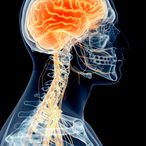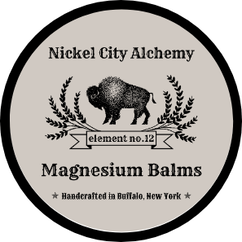- Home
-
All Products
- eGift Card
- Sleep Balm
- CBD Sleep Balm
- Recovery Balm
- CBD Recovery Balm
- Immunity Balm
- Little Buffalo Balm
- Simply Balm
- Heart & Soul Duo
- Magnesium Salt Soaks (1.85 oz)
- Magnesium Salt Soak (8 oz)
- Magnesium Salt Soak Bundle
- Self Care Candle Gift Set: Calming
- Self Care Candle Gift Set: Soul Warming
- Sleepy Buffalo Gift Set (2-Pack)
- The Gift of Wellness Set (3-Pack)
- The Gift of Wellness Set (2-Pack)
- Craft Your Own Gift Set (3-Pack)
- ADD ON: Extra Burlap Gift Bag
- Find in Store & Events
- Testimonials
- Contact
- Buffalo Beauts Partnership
- Blog
 With Valentine’s Day approaching, it’s a good time to think about emotional health. This celebration of love brings up reactions ranging from total delight all the way to resurfacing relationship trauma. And it’s important to take a look at how days like this that are promoted by our culture resonate in our emotions and, yes, even in our bodies. Especially in our bodies. And of course you know what we’re going to say next… magnesium is part of these reactions in our bodies! Like many other reactions, the relationship between emotional health and magnesium is one that goes in both directions: our magnesium levels affect our emotional health, and our emotional health affects our magnesium levels. Much of this is about our relationship with stress and our sympathetic and parasympathetic nervous systems. Our sympathetic nervous system is the system that activates our “fight, flight, or freeze'' response when we are in danger; our parasympathetic nervous system is the system that returns our body to a sense of calm so we can resume normal functioning. However, when we are constantly exposed to stress or danger without the opportunity to process it or achieve a sense of safety, our bodies and emotions can get stuck in a constant state of sympathetic nervous system activation. This causes a cascade of physical effects in the body, particularly where magnesium is concerned.. In The Magnesium Miracle (2017), Dr. Carolyn Dean writes that “Adrenaline, noradrenaline, and cortisol (elevated in chronic stress) deplete magnesium. Stress causes elimination of magnesium through the urine, further compounding magnesium deficiency. ‘Stress’ is such an overworked word, but we all suffer physical, emotional, and mental stress every day, and every bit of it drains magnesium” (p. 14). What does this have to do with Valentine’s Day? Love? Relationships? If you find yourself in a negative, toxic, or even abusive and traumatic relationship with a partner, friend, or family member (or even an overly-critical and negative self-talk relationship with yourself), it can cause your body to lose magnesium. Which then makes it more difficult to manage stress and maintain emotional health in the future. For a little more on how this works, Dr. Dean goes on to say that “When the adrenals are no longer protected by sufficient magnesium, the fight-or-flight hormones adrenaline and noradrenaline become more easily triggered. When they surge erratically they cause rapid pulse, high blood pressure, and heart palpitations. The more magnesium-deficient you are, the more exaggerated is the adrenaline response” (Dean, 2017, p. 14). All of this sounds pretty terrible, right? The flip side of this, however, is the hopeful side, because this negative-feedback system is reversible! If you are in a state of emotional health (having a loving and supportive partner, family, and friends) or cultivating love for YOURSELF, it may actually help your body to maintain your magnesium levels and, consequently, better physical health… leading to better emotional health because then you are able to manage stress better in the future, making this a positive-feedback loop. “Magnesium calms the nervous system, relaxes muscle tension, and lowers the pulse rate, helping to reduce anxiety and panic attacks” (Dean, 2017, p. 14). How can you make this happen? Some of it is nutritional - you can eat magnesium-rich foods and/or supplement with magnesium. (And we have just released our new Soul Salt Soak with rose, cardamom, bergamot, and vetiver for emotional grounding and easing anxiety.) Other healthy ways to calm the nervous system include deep breathing, meditation, yoga, tai chi, massage, acupuncture, reiki, EFT tapping, or getting out into nature. So... on Valentine's Day, be sure to show some love to your parasympathetic nervous system! Dean, C. (2017). The Magnesium Miracle (Second Edition). Ballantine Books. Disclaimer: The purpose of this post is to share news and information about our products as well as research-based information on magnesium that we have found useful. We are NOT medical professionals and do not intend this post to be taken as medical advice. Our products are not FDA approved or approved for medical use, nor are they intended to diagnose, treat, or cure any disease. Please be sure to consult a medical professional with any questions about utilizing our products along with your current health regimen!
0 Comments
Your comment will be posted after it is approved.
Leave a Reply. |
AuthorsNikki Bradshaw Archives
February 2022
Categories
All
|
- Home
-
All Products
- eGift Card
- Sleep Balm
- CBD Sleep Balm
- Recovery Balm
- CBD Recovery Balm
- Immunity Balm
- Little Buffalo Balm
- Simply Balm
- Heart & Soul Duo
- Magnesium Salt Soaks (1.85 oz)
- Magnesium Salt Soak (8 oz)
- Magnesium Salt Soak Bundle
- Self Care Candle Gift Set: Calming
- Self Care Candle Gift Set: Soul Warming
- Sleepy Buffalo Gift Set (2-Pack)
- The Gift of Wellness Set (3-Pack)
- The Gift of Wellness Set (2-Pack)
- Craft Your Own Gift Set (3-Pack)
- ADD ON: Extra Burlap Gift Bag
- Find in Store & Events
- Testimonials
- Contact
- Buffalo Beauts Partnership
- Blog

 RSS Feed
RSS Feed